Freedom at last: Palestinians freed under swap deal renew allegiance to resistance
By Alireza Akbari
Israeli regime released 200 Palestinian abductees on Saturday as part of the second phase of a ceasefire and swap deal, exchanging them for four female Israeli military captives released earlier in the day by the Gaza-based resistance movement Hamas.
Hours after the televised ceremony in Gaza City in which the four young Israeli female soldiers were released, a convoy of buses carrying the freed Palestinian abductees arrived in Ramallah, where jubilant crowds warmly embraced them, many of whom had spent decades in Israeli prisons.
According to lists provided by the Hamas-linked prisoners’ office, about 120 of the released men had been serving life sentences for their involvement in the struggle against the Zionist occupation.
However, approximately 70 of the freed abductees were exiled by the regime in Tel Aviv. They were transported to Egypt, where they have been admitted to hospitals for medical treatment.
The release, part of the ‘Toufan Al-Ahrar’ (Flood of the Free) agreement, was hailed as a momentous achievement. Zaher Jabareen, Head of the Martyrs, Prisoners, and Wounded Office, called it a “historic victory for the will of the Palestinian people and their courageous resistance.”
“This battle is not merely a phase; it is a shining milestone in the struggle, proving that our people are capable of reclaiming their rights from the jaws of the occupier, no matter how oppressive it becomes,” he said in a statement released on Saturday.
The statement added that the steadfastness and sacrifices of Palestinian people, particularly in the besieged Gaza Strip after braving the 471-day genocide, were the cornerstone of this achievement.
The swap deal saw the release of several prominent Palestinian abductees who had been serving long-term and multiple life sentences in Israeli prisons for their resistance activities.
Among them were Mohammed Al-Tous, Naji Basharat, Raed Al-Saadi, and Fahad Sawalhi.
The initial moments following the arrival of the 70 prisoners, released as part of the resistance's Toufan al-Ahrar (Flood of the Free) prisoner exchange agreement, who were transported to the Egyptian capital, Cairo.
— Palestine Highlights (@PalHighlight) January 26, 2025
Follow Press TV on Telegram: https://t.co/fvRn3Kv8f4 pic.twitter.com/8p9qeVRQh6
Mohammed Al-Tous (Abu Shadi)
At 69 years, Mohammed Al-Tous was released after languishing in Israeli prisons for nearly four decades. He is known for spending the longest time in Israeli prisons.
Arrested in 1985 for his resistance activities and affiliation with the Fatah movement, Al-Tous suffered severe injuries during his capture and was subsequently sentenced to life imprisonment.
Raed Al-Saadi
Raed Al-Saadi, 57, from Silat al-Harithiya, Jenin, was freed after spending 36 years behind bars.
Arrested in 1989, he was sentenced to two life terms and 20 additional years for resistance operations.
Al-Saadi was a notable figure among the Palestinians lodged in various Israeli regime prisons, inspiring his peers and authoring a novel titled ‘My Mother, the Palestinian Mariam.’
Ayham Sabah
Detained as a child at just 14 years old in 2016, Ayham Sabah was sentenced to life imprisonment following a stabbing operation at the Rami Levy store, which resulted in the death of an Israeli soldier.
Despite the harsh conditions of his imprisonment, Sabah became known for his exceptional intellect, resilience, and unwavering positivity.
Nour Jaber (Al-Khalil)
Nour Jaber, known as Al-Khalil, was one of the masterminds behind the Ziqaq al-Mawt (Alley of Death) operation during the Al-Aqsa Intifada, which resulted in the deaths of 12 Israeli soldiers and officers, including a senior commander.
For his suspected role in that operation, Jaber was sentenced to life imprisonment.
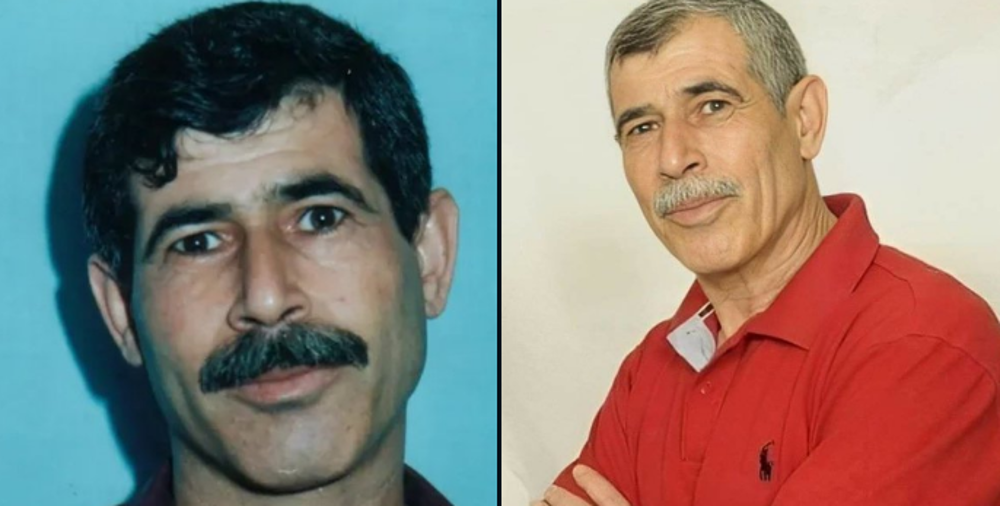
Mohammad Al-Aridah
Mohammad Al-Aridah from Jenin in the occupied West Bank was one of the Freedom Tunnel prisoners who escaped from Israel’s Gilboa Prison in September 2021.
His release fulfills the resistance’s promise to secure freedom for those who defied captivity.
Wael Jaghoub
Arrested in 2001, Wael Jaghoub, who hails from Arraba in Jenin, occupied West Bank, was sentenced to life imprisonment for leading resistance operations.
As a prominent leader in the Palestinian prisoner movement, he endured numerous hunger strikes and spent half his life in Israeli prisons, symbolizing unwavering resistance.
Naji Basharat
After 23 years in captivity, Naji Basharat delivered a powerful statement upon his release.
"They were the ones who were imprisoned, not us. They were the ones humiliated, not us. They made us hungry, but we are full of pride and honor. They did not impose conditions on us because the conditions of the [Al-Qassam] Brigades ruled them," he said.
Fahad Sawalhi
Fahad Sawalhi from Balata Camp in the occupied West Bank served seven life sentences plus an additional 50 years in the Israeli military.
While in prison, he authored a book declaring, "The news is clear—we will leave through the gate. We won’t be forced to dig a new tunnel."
His words came true as resistance efforts secured his freedom. In Balata Camp, his return was celebrated with banners reading, "Thank you to the resistance" and "We left, and we conquered the jailer."
Mohammad Arda
Arda was one of six Palestinians involved in the daring 2021 escape from Gilboa Prison, widely known as Operation Freedom Tunnel.
Originally arrested in 2002, he was serving three life terms and an additional 20 years for his resistance activities before his release.
Nasr Daoud
Nasr Daoud from Beita south of Nablus, occupied West Bank, had been sentenced to two life terms and 20 additional years. On Saturday, he celebrated his liberation, made possible by the resistance.
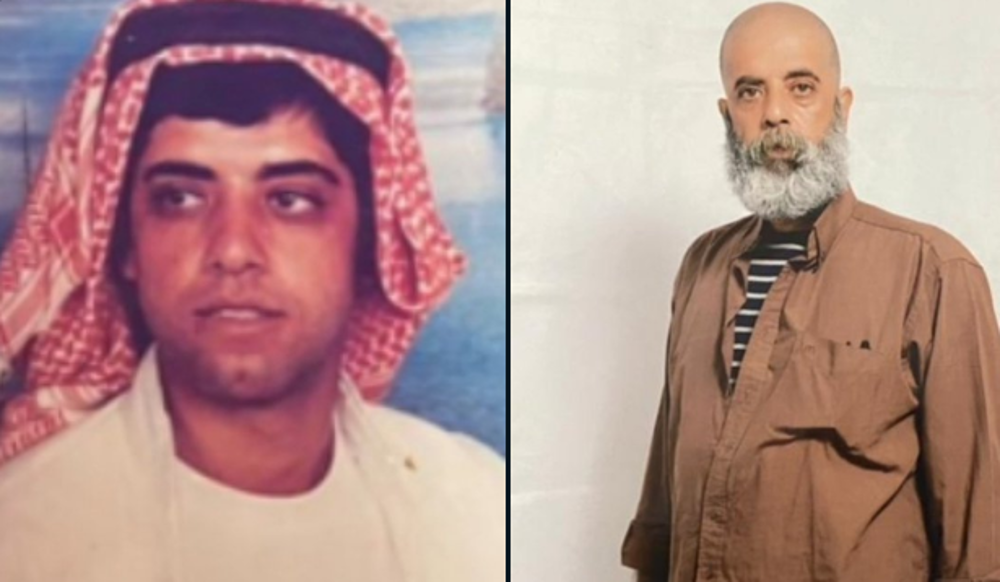
Bakr Khraioush
Bakr Khraioush, sentenced to nine years in prison, returned to his home in Tulkarem, occupied West Bank, on Saturday as part of the swap deal.
He was arrested in 2015 on the day of his wedding for aiding Ashraf Na'alwa, a Palestinian fighter pursued by Israel following his shooting operation in the Barkan settlement.
Ashraf was killed by Israeli forces in 2018, but Bakr’s support for him marked him as a target for the occupation.
Nasr and Akram Badawi Abu Sneineh
Arrested in 2016 after months of pursuit, Nasr and Akram Badawi Abu Sneineh were accused of conducting 12 sniper operations during the occupied al-Quds Intifada.
Nasim Rashid Al-Zaatari
Nasim Al-Zaatari, arrested in September 2003, was sentenced to life imprisonment 24 times, along with an additional 600 years, for his involvement with the Al-Qassam Brigades.
He was accused of aiding martyr Raed Misk in an operation in occupied Jerusalem al-Quds in 2003, which resulted in the deaths of 24 Israelis and injuries to over 100 others.
During his 22 years in detention, Al-Zaatari endured severe torture, including repeated isolation and denial of family visits. On Saturday, he was finally reunited with his family.
Saeed Nasser Arar
Saeed Arar, from Qarawat Bani Zeid near Ramallah, served 20 years in prison, having been sentenced to life plus 20 years. During his incarceration, Arar endured separation from his wife and three children.
When his son Bakr was arrested at 17, Arar went on a hunger strike to demand to see him.
He had been imprisoned for working with the Resistance’s Prisoners’ Liberation Unit, aiming to capture a Shin Bet officer to help free Palestinian detainees.
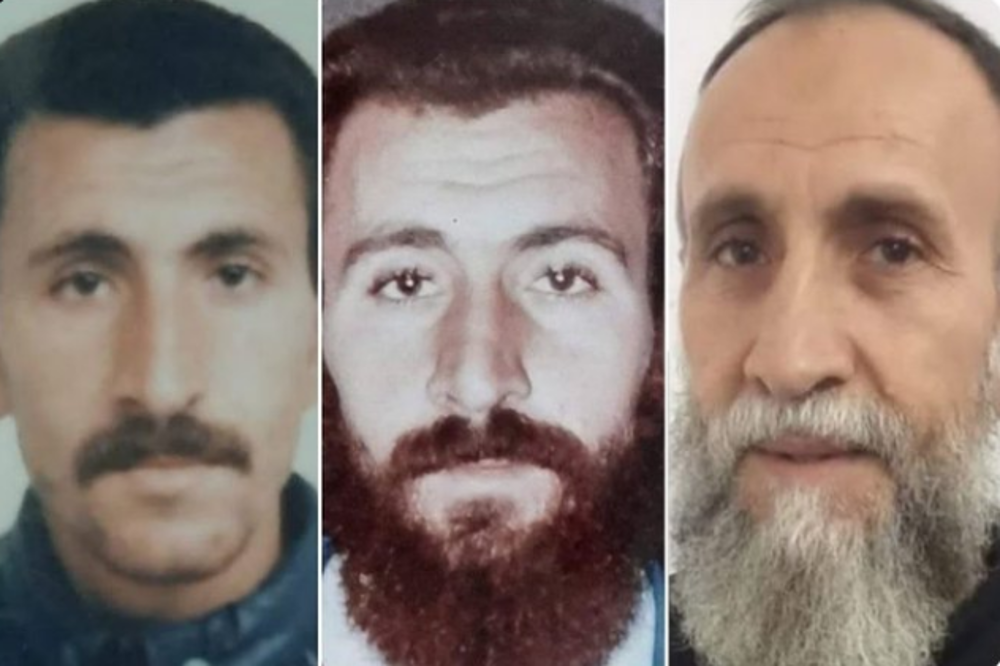
Raif Al-Farra
Raif Al-Farra was allegedly responsible for planning and executing the bombing of the Mahfouz checkpoint in the Gaza Strip, among other resistance operations.
Arrested at the checkpoint in 2004, Al-Farra evaded the occupation forces. He was eventually caught when his phone rang and a collaborator identified him.
Al-Farra was sentenced to six life sentences, and his trial coincided with the Israeli military withdrawal from Gaza in 2005.
Iyad Jaradat
Iyad Jaradat, who helped dig the famous Freedom Tunnel used by Palestinian prisoners to escape, was also freed in the Toufan Al-Ahrar exchange on Saturday.
Jaradat had famously declared in court, “We will be released in a deal with the Qassam Brigades!” His words came true. Jaradat, born on May 28, 1984, in Silat al-Harithiya near Jenin, was part of a steadfast Palestinian family and a symbol of resistance.
He celebrated his release as a victory of freedom and resistance, specifically attributing his liberation to the al-Qassam Brigades.
Salah al-Din Abu Jalboush
Born in Marqa, south of Jenin, Salah al-Din Abu Jalboush joined An-Najah University's Faculty of Sharia in 2001 and later became a prominent figure in the Islamic Bloc.
He joined the Palestinian resistance and Al-Qassam Brigades and was arrested in December 2003 after a violent raid by Israeli forces on his home.
Jalboush was tortured during his harsh interrogation and sentenced to life imprisonment for his role in an operation that killed two illegal Israeli settlers near Jenin, occupied West Bank.
Abu Jalboush participated in the 2012 Karameh hunger strike and spent 22 years in prison before being freed in a swap deal on Saturday.
Mahmoud Shreiteh
Mahmoud Shreiteh, a former head of the Birzeit University Student Council, was a leader of the Islamic Bloc from 1997 to 1999.
He served as president of the Student Council between 1999 and 2001, gaining prominence for his activism.
Shreiteh was arrested by Israeli occupation forces in the city of Al-Bireh in 2002 after elements of the Zionist special forces stormed the Sayyid Qutb Mosque.
He was freed as part of the Toufan Al-Ahrar deal, which fulfilled the resistance’s promise of liberation.
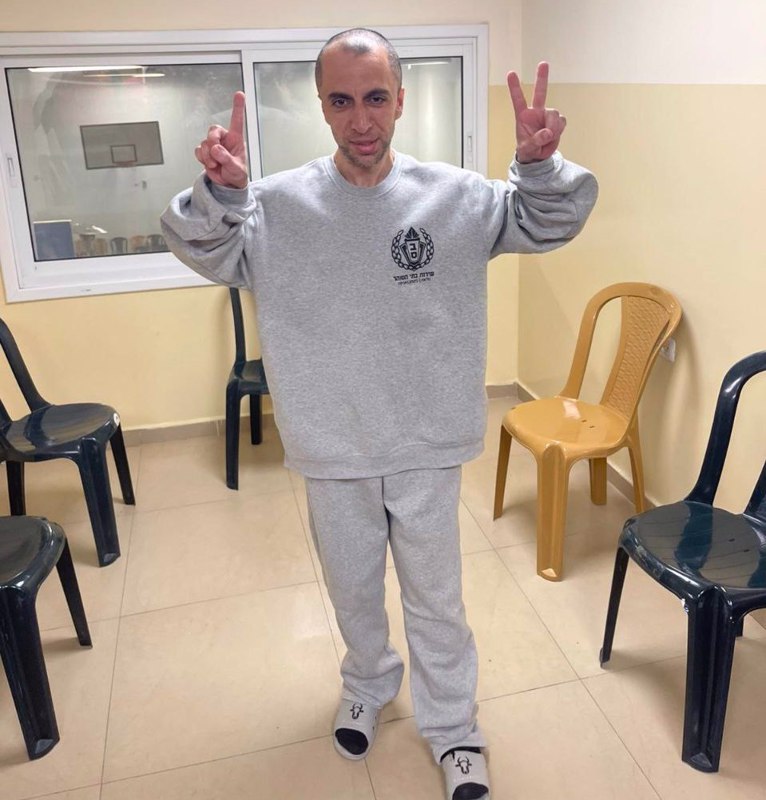
Salim Hijji
Born in Burqa, near Nablus, Salim Hijji was a key figure in the rebuilding of the Hamas military wing in the Nablus area of the occupied West Bank during the Second Intifada.
Arrested in 2002 after a long manhunt, Hijji was accused of being involved in several martyrdom operations, including those in Haifa, Jerusalem, and Tel Aviv between 2000 and 2001.
He was sentenced to 16 life terms and 30 years in prison. After serving 23 years, Hijji was liberated on Saturday in the Toufan Al-Ahrar deal.
Muhammad Qassem Ahmad Al-Ardah
Muhammad Al-Ardah, 39, from Arraba in the northern occupied West Bank, had been in jail since May 2002.
He was sentenced to three life terms and 20 years (now 25 years) for his role in the resistance activities, particularly during the Al-Aqsa Intifada.
Al-Ardah, a member of the Palestinian Islamic Jihad movement, was a key figure in the resistance against Israeli occupation and was freed in the swap deal on Saturday.
Yousef Hamdan
Hamdan, 53, from Jenin and a member of Islamic Jihad’s Al-Quds Brigades, was released on Saturday after spending 21 years in Israeli regime prisons.
He was first held during the First Intifada in 1989 and re-arrested in 1991. In 2003, he was sentenced to two life terms for resistance activities that led to the killing of several Israeli soldiers.
Ahmed Saleh Ahmad Musa
Musa, 37, from Beit Laqia near Ramallah, was freed on Saturday after 12 years in detention.
A graduate of Birzeit University with a BA in Economics and an MA in Political Science from Al-Quds University, he was arrested in 2012 for planning an operation in Tel Aviv in response to Israeli aggression in Gaza.
He endured a 42-day hunger strike in 2017 while serving his 27-year sentence.
Mohammed Younis Ali Abu Hanak
Abu Hanak, 29, from Al-Obaidiya and affiliated with Islamic Jihad movement, served 8 years in prison for carrying out a stabbing operation against an Israeli police officer in occupied Al Quds.
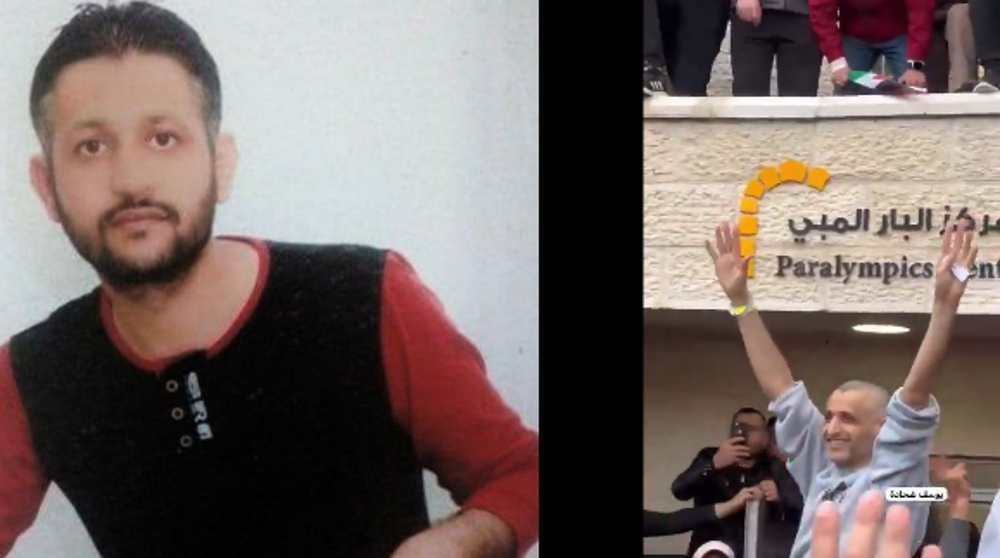
Saeed Al-Bana
Al-Bana, 44, from Tulkarem and a member of the Al-Quds Brigades, was imprisoned for 21 years after being arrested in 2003 for resistance activities.
During his detention, he suffered from cancer due to deliberate medical neglect by Israeli authorities.
Rabi’ Abu al-Rub
Abu al-Rub, 47, from Qabatiya, was released after 23 years in prison on Sunday.
Arrested following his participation in resistance operations during the 2002 Battle of Jenin, he was subjected to 100 days of torture during interrogation and sentenced to two life terms.
Despite several obstacles, he completed his bachelor’s and master’s degrees in political and economic sciences while languishing in prison.
Mohammed al-Salaymeh
Al-Salaymeh, 31, from Al-Quds, spent 9 years in prison after being sentenced to 25 years for a 2015 vehicular ramming operation in Sheikh Jarrah that injured five Israeli soldiers.
He was shot eight times during his arrest, highlighting the brutal measures taken by occupation forces.
Riad Arafat
Arafat, 50, from Nablus, was freed after 17 years in Israeli jails as part of the swap deal on Saturday.
As a member of one of the most well-equipped units of the Al-Qassam Brigades in the occupied West Bank, he led operations against Israeli military targets in the Nablus area.
His arrest followed a complex ambush, during which Arafat and his comrades dressed as Israeli regime forces and killed two occupation soldiers.
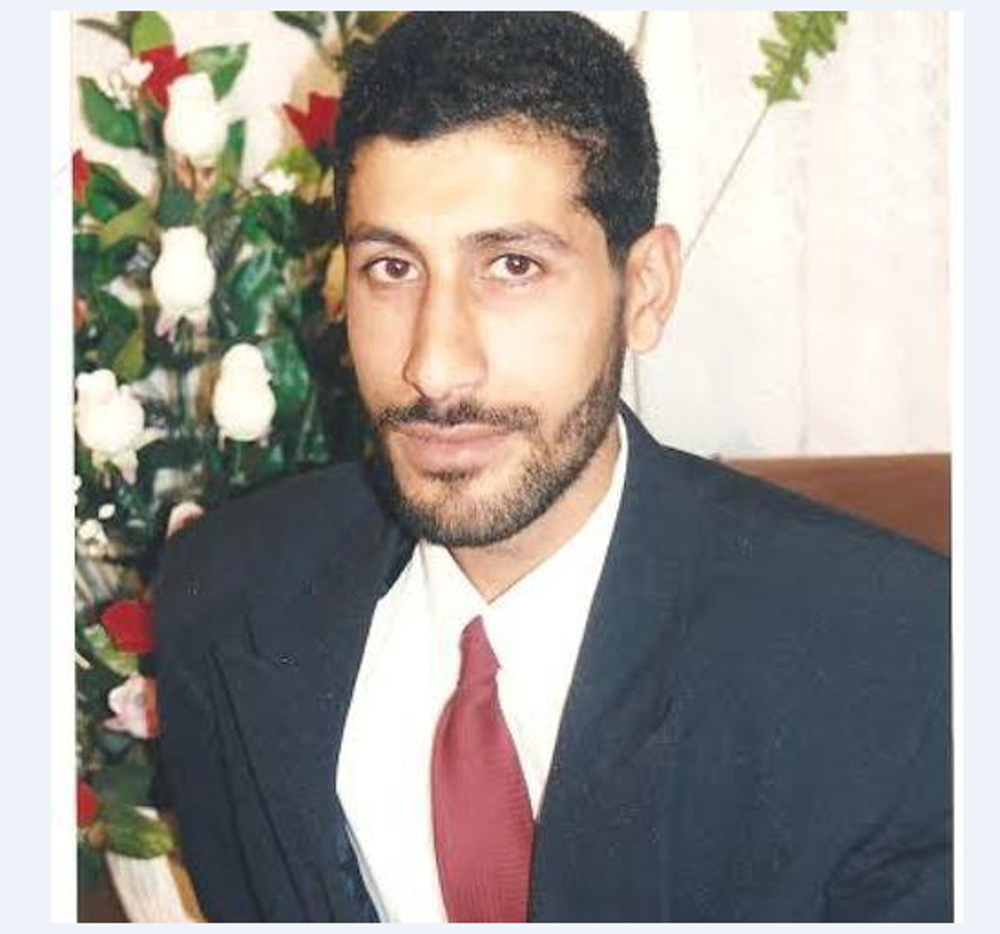
Mohammed Sami
Sami, 50, from Bethlehem, was released on Saturday after over 8 years in Israeli prisons.
Arrested in 2016 for his role in an Al-Qassam Brigades cell responsible for operations in occupied Al Quds and Bethlehem, Sami endured severe torture, including maiming his arm with attack dogs.
Upon his release, he praised the strength of his people, especially the steadfastness of Gaza, saying, “They tried to kill us for 16 months, but our resolve is strong.”
Ashraf Zaghir
Zaghir, 48, from occupied al-Quds, was sentenced to six life sentences in 2002 for his involvement in a resistance operation against the Israeli military in Tel Aviv.
During his imprisonment, he studied and earned a BA in economics and political science.
Upon release, Zaghir saluted the al-Qassam Brigades, calling his liberation a sign of victory for the resistance and affirming that the Palestinian struggle would continue until freedom was achieved.
Azmi Nafaa
Nafaa from Jenin in the occupied territories was released on Saturday after nine years and 2 months.
He was arrested in 2015 after being critically injured by Israeli forces during a car-ramming operation at the Za'atara checkpoint southeast of Bethlehem.
Despite his injuries, he was interrogated before being sentenced to 20 years in prison.
Ahmed Khudruj
Khudruj from Qalqilya in the occupied West Bank was released after 7 years of detention.
His release was celebrated by a massive crowd of people, and he expressed profound gratitude for the resistance and the people of Gaza.
Khadruj called for continued victories and acknowledged the sacrifices made by martyrs for Al-Aqsa and in the fight for the liberation of occupied territories.
Mohammed Zayed
Zayed, from Ramallah, was released after 20 and a half years in Israeli detention.
In an emotional moment, he embraced his son and expressed deep gratitude to his wife for her unwavering support throughout his years in prison.
"I was imprisoned for 20 years and a half. Here, here are those 20 years. This boy was in his mother's womb. I was married for 4 months, and this noble woman birthed and raised him, and now he is a man, praise be to Allah," Zayed said.
He also conveyed his appreciation to the Palestinian people for their warm reception.
“You raised our heads. We were expecting a reception but nothing of this size, by Allah. We were expecting love and sympathy from the people but not to this extent.”
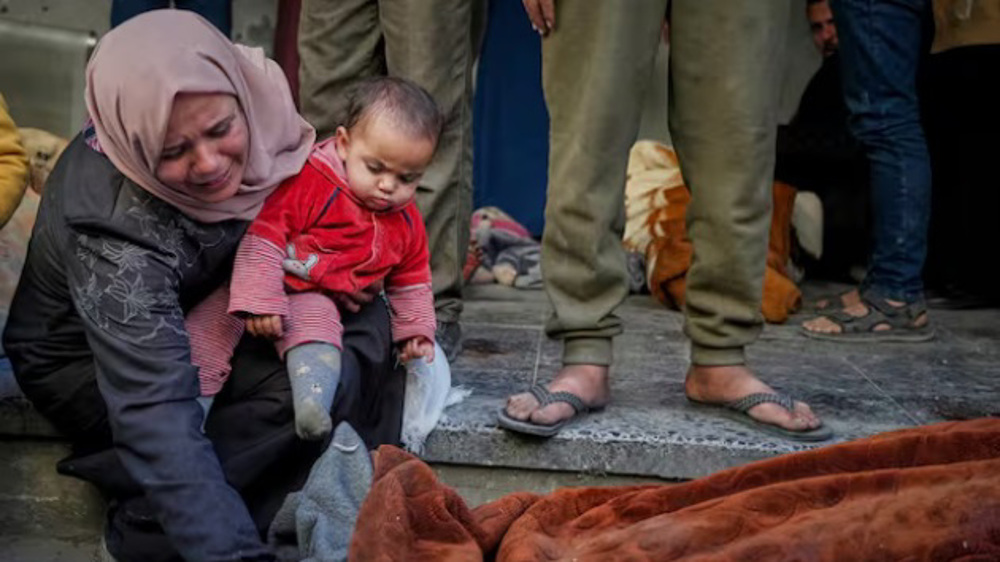
Gaza’s children paying for Netanyahu’s political ambitions with blood: Hamas
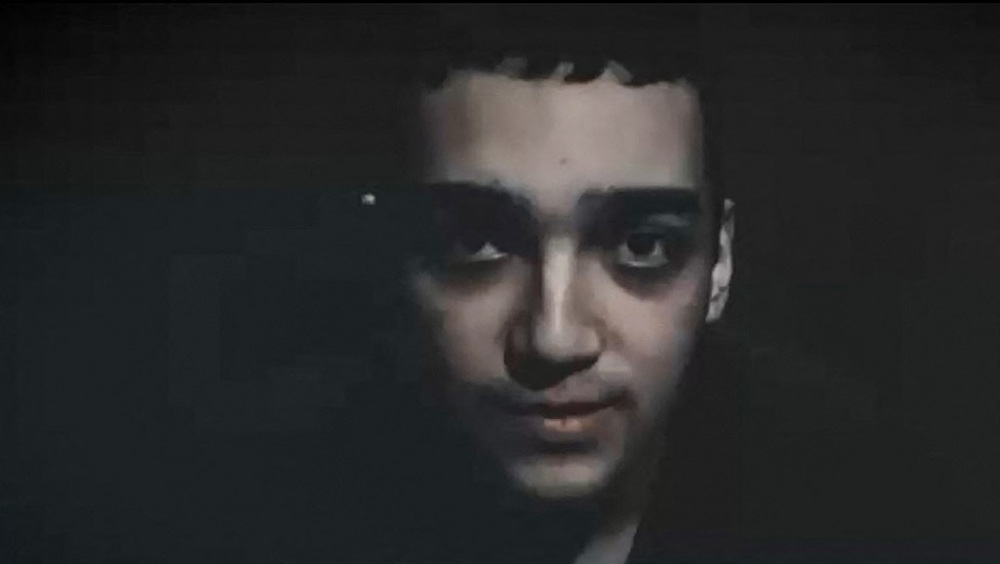
Hamas releases video showing Israeli-American captive alive
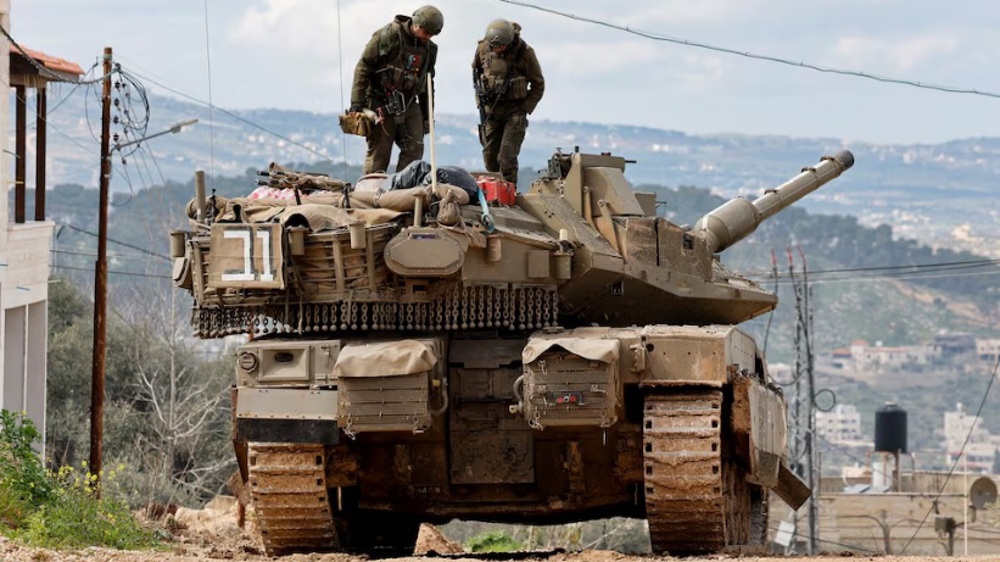
Israeli forces detain Palestine TV crew in West Bank’s Jenin, seize equipment
Yale's decision to terminate Dr. Helyeh Doutaghi aimed to silence anti-genocide voices: Activists
Iran’s aluminum output down by nearly 5% in year to March
Missiles fired from Yemen triggers sirens in Israeli-occupied territories, closes airport
Iran condemns terror attack in southeast that killed 8 Pakistani nationals
Deir al-Balah massacre: Israeli airstrikes killed 6 brothers at once
Iran currency surges on positive news from Iran-US talks
VIDEO | Spain’s Seville hosts concert in solidarity with Palestinians
VIDEO | Press TV's news headlines






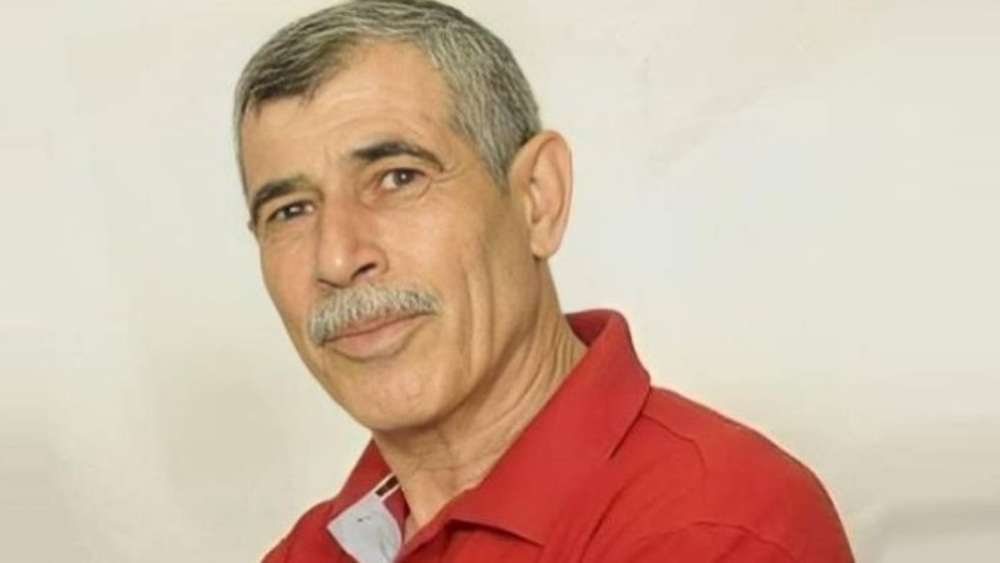
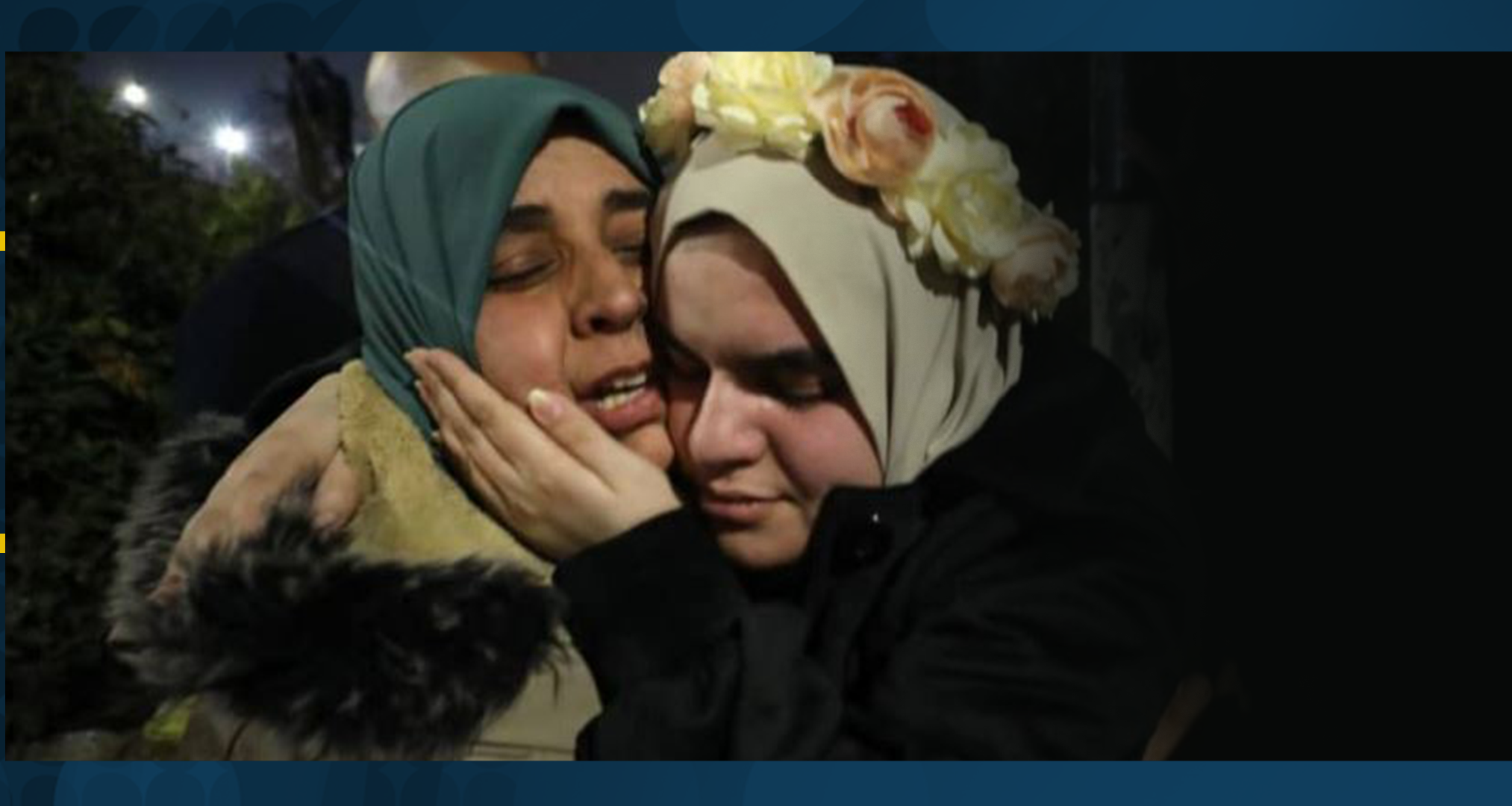
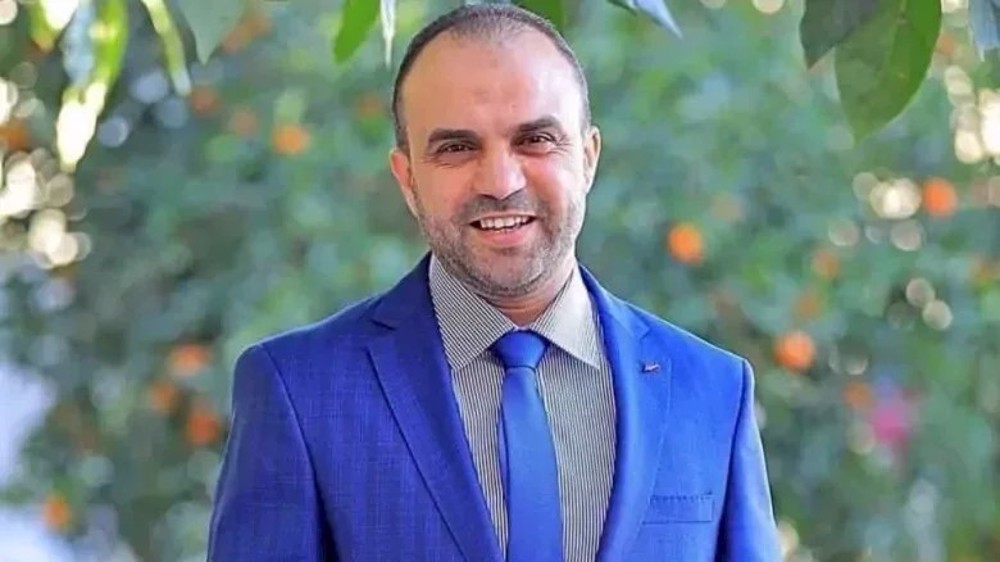
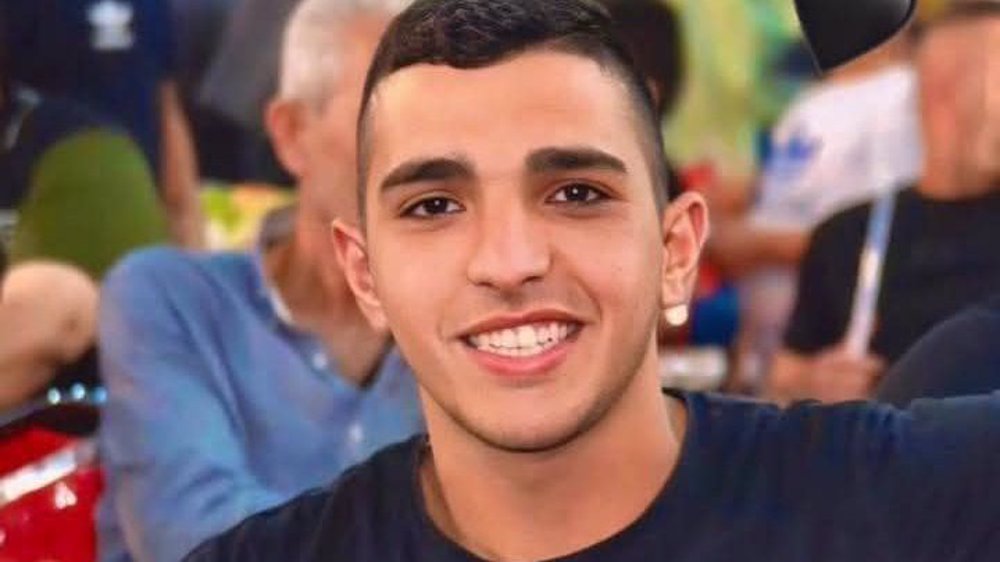
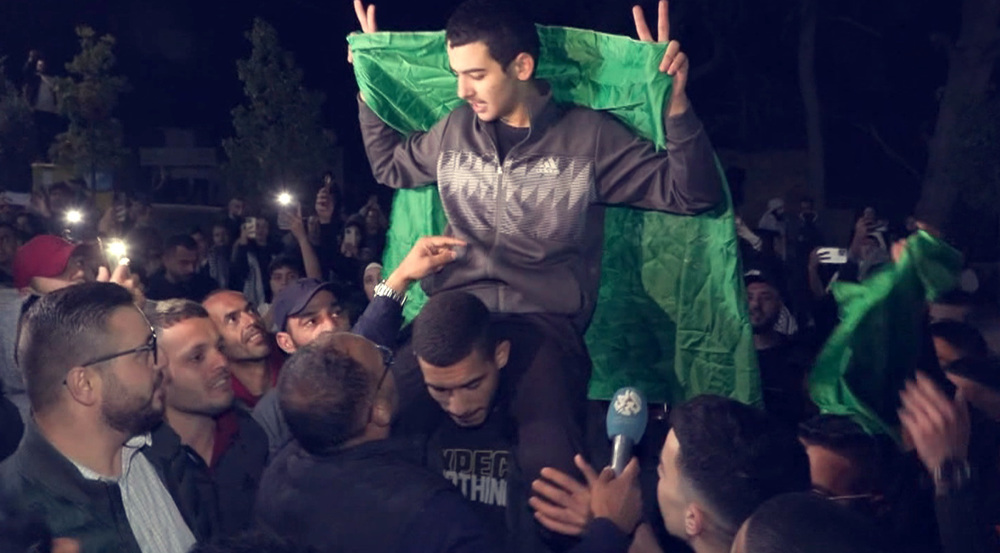
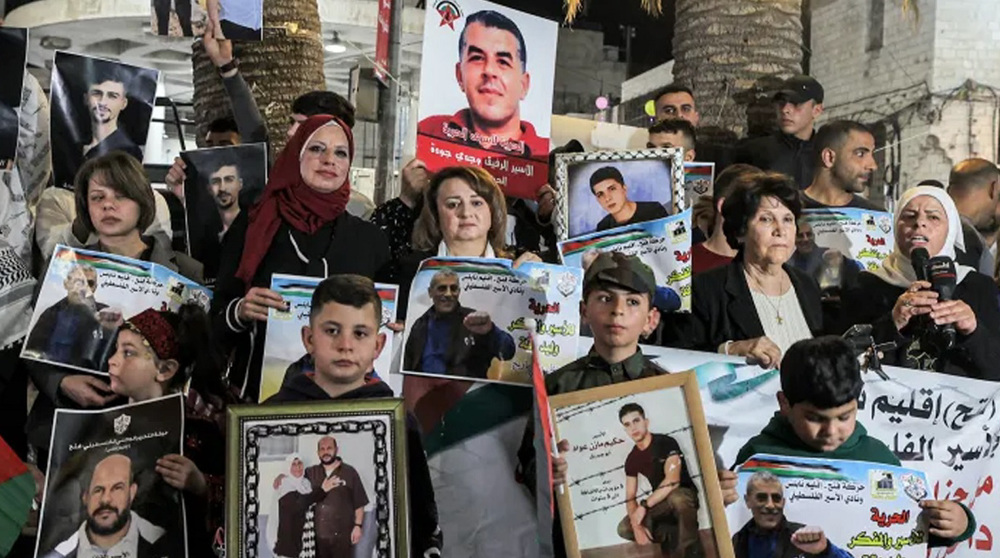

 This makes it easy to access the Press TV website
This makes it easy to access the Press TV website